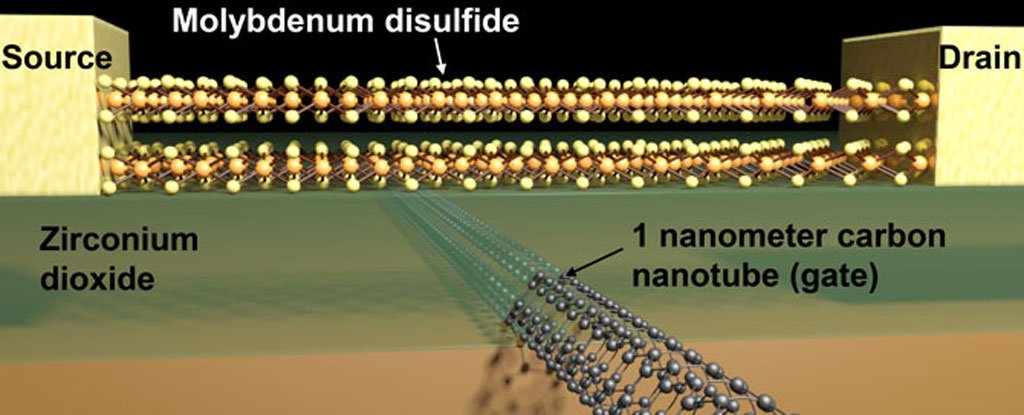A team of scientists from the U.S. has succeeded in creating the world’s smallest transistor. The experimental device has a working 1-nanometer gate.
To have an idea of how tiny it is, a human hair is around 80,000 to 100,000 nanometres wide. Scientists always keep looking for ways to make the components smaller and smaller. Small transistors allow more of them to be fitted on integrated circuits, making processors faster and more efficient.
Over the years, silicon transistors have been getting smaller and smaller, but silicon transistors can’t get much smaller. So to get this incredibly small size, scientists have turned to silicon alternatives.
As per Moon Kim, a professor of materials science and engineering at the University of Texas, “Silicon transistors are approaching their size limit. Our research provides new insight into the feasibility to go beyond the ultimate scaling limit of silicon-based transistor technology.”
Researchers from the University of California, Berkeley, made use of carbon nanotubes and molybdenum disulfide to make the world’s smallest transistor. They crossed the 5-nanometer threshold that was previously considered to be the peak of transistor miniaturization.
Ali Javey, the head of the Berkeley Lab’s Materials Science Division said, “We made the smallest transistor reported to date. We demonstrated a 1-nanometer-gate transistor, showing that with the choice of proper materials, there is a lot more room to shrink our electronics.”
This breakthrough will help in producing smaller and more efficient computer chips, and ultimately, smaller, more efficient electronics.







